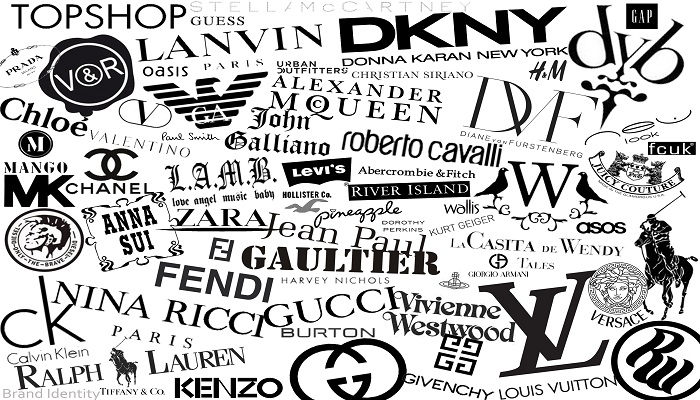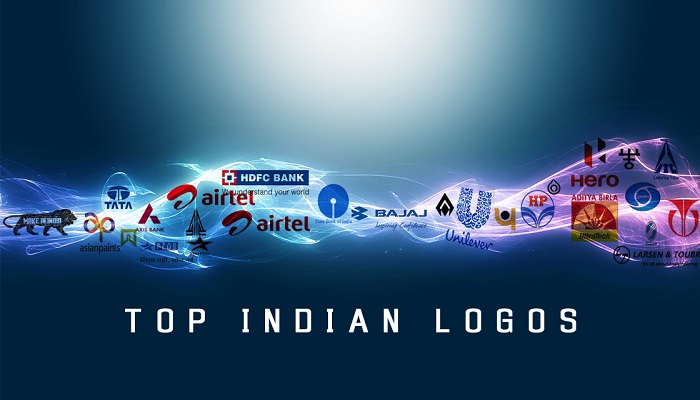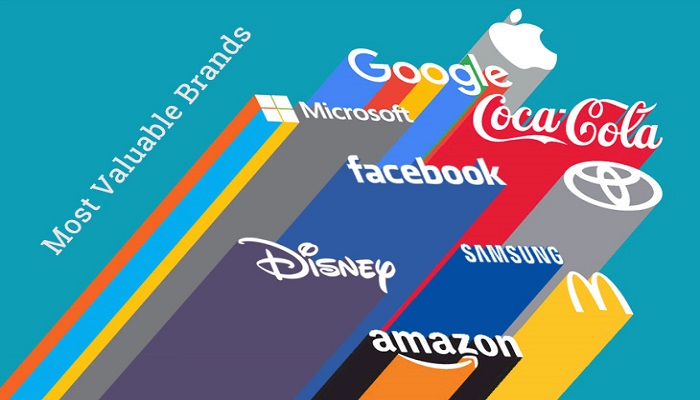Luxury brands are well-known for their distinctive styles, qualities, and exclusivities. Here are some of the leading luxury brands globally:
1.Louis Vuitton
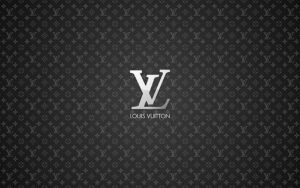
Louis Vuitton is a French luxury fashion and leather goods brand established in 1854. It is known for its iconic LV monogram and as one of the world’s most valuable luxury brands. It offers products such as leather goods, ready-to-wear apparel, shoes, watches, jewellery accessories and fragrances.
The Art of Luxury: Louis Vuitton has long been associated with the art of luxury, crafting products with meticulous care and attention to every detail. Their commitment to quality has earned them recognition as one of the world’s premier and desirable luxury brands.
History: Louis Vuitton was founded in 1854 by Louis Vuitton, a French fashion designer and entrepreneur. At first, this brand specialized solely in producing high-quality trunks and luggage; over time, however, its product offering has expanded significantly to encompass luxury goods of various kinds.
Louis Vuitton Products as Status Symbols: Louis Vuitton products have long been associated with wealth, luxury and exclusivity – becoming status symbols representing wealth, luxury and exclusivity. Their iconic monogram can instantly recognize as well as signify prestige and success.
Beyond Products: Louis Vuitton has expanded beyond its core product offerings to offer experiences and services tailored specifically for luxury consumers, such as art and cultural initiatives, personalized services such as made-to-order products and customized travel experiences.
The Business of Luxury: Louis Vuitton is part of LVMH (Louis Vuitton Moet Hennessy), encompassing other luxury brands like Dior, Fendi and Bulgari. As with any business venture, luxury goods manufacturing can be highly competitive; Louis Vuitton must continually innovate to stay at the top of their game and stay ahead of its rivals.
Innovation and Evolution: Louis Vuitton has long been at the forefront of innovation and evolution within the luxury goods industry, pioneering groundbreaking materials and technologies while working closely with artists and designers to produce unique and exclusive pieces. This includes using innovative materials and technologies and collaborating on projects with artists to create innovative yet exclusive products.
Luxury Brands and Sustainability: With consumers increasingly aware of their impact on the environment, luxury brands such as Louis Vuitton are taking steps to become more eco-friendly by using renewable materials, reducing waste and carbon emissions, investing in ethical business practices and engaging in ethical business practices that support long-term profitability.
Future of Luxury: As luxury evolves, brands such as Louis Vuitton must adjust to meet consumers’ ever-evolving needs and desires, including exploring new technologies and materials, adopting sustainable practices, and continuing to offer unparalleled experiences for their customers.
2.Chanel
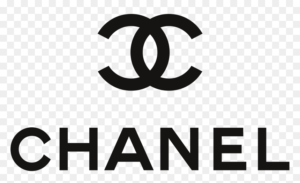
Chanel is a French luxury fashion and beauty brand founded by Coco Chanel in 1910. Renowned for timeless elegance and iconic products such as its No. 5 fragrance and classic suit designs, Chanel provides ready-to-wear clothing, accessories, handbags, shoes and beauty products.
The Art of Luxury: Chanel products epitomize luxury art with meticulous attention paid to craftsmanship, quality and detail. Chanel products boast both beauty and functionality for broad customer appeal.
History: Chanel was established by Coco Chanel, an influential fashion designer who revolutionized women’s dress. Since its foundation, Chanel has come to represent French chic while expanding its product offering into multiple luxury categories.
Chanel Products Are Status Symbols: Chanel products have long been seen as status symbols, emblematic of sophistication, style and exclusivity. The interlocking CC logo has become instantly recognizable as representing luxury and refinement.
Chanel Has Gone Beyond Products: Chanel has extended beyond their core product offerings to offer experiences and services tailored specifically to luxury consumers, including art and cultural initiatives and personalized services such as made-to-order products and tailored experiences.
The Business of Luxury: Chanel is part of the giant luxury goods conglomerate CHANEL SA, comprising brands such as Fendi and Karl Lagerfeld. Competition in the luxury goods business can be fierce; brands like Chanel must constantly adapt in order to remain ahead of their rivals and stay at the forefront.
Innovation and Evolution: Chanel is known for their long history of innovation and evolution within the luxury goods industry, constantly pushing forward and pushing limits with new materials and technologies and working closely with artists and designers to craft unique and exclusive products.
Luxury Brands and Sustainability: With consumers becoming more conscious of their impact on the environment, luxury brands like Chanel are making efforts to become more eco-friendly by using sustainable materials, reducing waste and carbon emissions, investing in ethical business practices and engaging in more responsible business practices.
Future of Luxury: As luxury evolves, brands such as Chanel must evolve along with it, meeting consumers’ shifting needs and desires with innovative technologies and materials, adopting sustainability measures and offering exclusive experiences to their customers.
3.Hermes

Hermes is a French luxury brand founded by Thierry Hermes in 1837. Known for their high-quality leather goods, such as their iconic Birkin and Kelly handbags and scarves, watches, and fragrances, these high-end products have long been associated with Hermes.
Hermes Is Devoted to Luxury: Hermes has long been recognized for its commitment to luxury, with products designed with craftsmanship, quality materials and attention to detail in mind. Their products offer timeless elegance that appeals to a diverse customer base.
History: Hermes began as a small harness-making workshop in Paris during the mid-19th century but has since evolved into a global luxury brand. Over time, its product portfolio has expanded significantly, offering leather goods, accessories, apparel, and more.
Hermes Products Are Iconic Status Symbols: Hermes products have become iconic symbols of luxury and exclusivity for years, symbolizing luxury, refinement and exclusivity and are known by all as an instantly recognizable H logo that represents wealth and sophistication.
Hermes Goes Beyond Products: Hermes has expanded beyond its core product offerings to offer experiences and services tailored specifically for luxury consumers, such as its art and cultural initiatives, personalized services such as made-to-order products and customized experiences.
The Business of Luxury: Hermes operates within the highly competitive luxury goods industry. Hermes must continuously innovate and adapt to stay relevant and meet changing customer demands and needs.
Innovation and Evolution: Hermes has long been known for its commitment to innovation and change within the luxury goods industry, constantly pushing back against what’s possible with new materials, technologies and collaborations with artists and designers to produce unique and exclusive products.
Luxury Brands and Sustainability: With consumers becoming more mindful of their environmental impact, luxury brands such as Hermes have taken steps to become more eco-friendly by using eco-friendly materials, cutting down waste and carbon emissions, investing in ethical business practices and using ethical business practices in operations.
Future of Luxury: As luxury is constantly redefining itself, brands like Hermes must adapt to meet its shifting consumer demands by exploring innovative technologies and materials while prioritizing sustainability initiatives and offering unique experiences to their customers.
4.Gucci
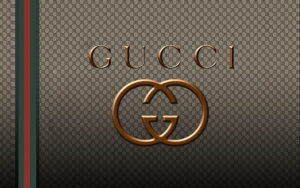
Gucci is an Italian luxury brand established by Guccio Gucci in 1921. It is widely known for its high-end fashion and leather products, such as handbags, shoes and other accessories.
The Art of Luxury: Gucci is committed to the art of luxury with products designed for both style and function, boasting quality craftsmanship, meticulous attention to detail, and groundbreaking designs that feature its iconic aesthetic.
History: Gucci began as a small family-owned leather goods business in Florence, Italy, before expanding into an international luxury brand. Today it offers clothing, watches, jewellery and fragrance products in its product lineup.
Gucci Products as Status Symbols: Gucci products have long been seen as status symbols, signifying luxury, sophistication and exclusivity. Its iconic double-G logo is instantly recognizable and often associated with high fashion and wealth.
Gucci Goes Beyond Products: Gucci has expanded beyond its product offerings to offer experiences and services designed to appeal to luxury consumers, such as art and cultural initiatives, as well as personalized services like made-to-order products and tailored experiences.
The Business of Luxury: Gucci operates within the highly competitive and ever-evolving luxury goods industry, which requires constant innovation to stay ahead of customer needs and expectations. Gucci must strive to stay ahead of these developments by innovating and adapting quickly enough.
Innovation and Evolution: Gucci has long been recognized for its innovations and evolution within the luxury goods industry, pushing forward through the use of innovative materials and technologies and collaborations with artists and designers to produce unique and exclusive products.
Luxury Brands and Sustainability: With more consumers becoming conscious of their impact on the environment, luxury brands such as Gucci are taking steps to become more environmentally sustainable, such as using more eco-friendly materials, cutting waste and carbon emissions and investing in responsible business practices.
Gucci’s Role in the Future of Luxury: As luxury evolves, so must brands such as Gucci. In response to consumer needs and preferences, this means embracing new technologies and materials while remaining committed to sustainable practices while creating exclusive experiences for their customers.
5.Prada
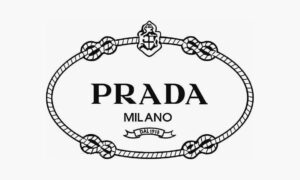
Prada is an Italian luxury fashion house founded by Mario Prada in 1913. This brand is best known for its high-end clothing, handbags, shoes and other accessories.
Prada Defines Luxury: Prada has long been dedicated to the art of luxury, emphasizing craftsmanship, innovation, and avant-garde design in their products that combine elegance with functionality while exuding an avant-garde aesthetic.
History: Prada began as a small leather goods shop in Milan, Italy and has grown into an international luxury brand over time. Their product offerings now encompass clothing, accessories and fragrances.
Prada Products Are Status Symbols: Prada products have become the ultimate status symbols, representing luxury, sophistication and exclusivity. Their iconic inverted triangle logo can instantly be recognized and is often associated with high fashion and luxury.
Prada Goes Beyond Products: Prada has gone beyond traditional products to offer experiences and services tailored to its luxury consumers. These offerings include art and cultural initiatives and personalized services like made-to-order products and customized experiences.
Prada Fits into the Luxury Goods Industry: Luxury goods manufacturing can be highly competitive and ever-evolving; therefore, Prada must remain ahead of its game in innovation and meeting customer needs and desires.
Innovation and Evolution: Prada is known for pushing the envelope regarding innovation and evolution in the luxury goods industry, using cutting-edge materials and technologies, collaborating with artists and designers to create unique and exclusive products and more.
Luxury Brands and Sustainability: With consumers becoming more environmentally aware, luxury brands such as Prada are making efforts to be more eco-friendly by using more eco-friendly materials, cutting waste and carbon emissions and investing in ethical business practices.
Prada’s Role in Luxury’s Future: Prada must adapt its offerings to meet consumer preferences as the future of luxury evolves, from exploring innovative materials and technologies to embracing sustainability initiatives and continuing to deliver unique and exclusive experiences for their clients.
6.Rolex
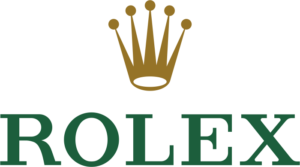
Rolex is a Swiss luxury watchmaker established in 1905. Distinguished for their high-end watches, considered among the most exclusive and valuable, Rolex has long been considered among the premier watch brands worldwide.
Rolex Devotes Itself to Luxury: Rolex has dedicated itself to the art of luxury for over 125 years, emphasizing quality craftsmanship, innovation and timeless design. Their watches combine functionality and style for an iconic aesthetic.
History: Rolex boasts an illustrious historical past, including numerous significant accomplishments and milestones. The brand is famous for pioneering innovations such as waterproof watches and automatic date changers – groundbreaking achievements.
Rolex Watches as Status Symbols: Rolex watches have long been considered one of the ultimate status symbols, representing luxury, success and exclusivity. Their iconic crown logo is instantly recognizable as being associated with wealth and prestige.
Rolex goes Beyond Products: Rolex has expanded beyond its core product offerings to offer experiences and services tailored specifically to luxury consumers, such as supporting art and culture and environmental sustainability initiatives.
The Business of Luxury: Rolex belongs to a highly competitive luxury goods industry that’s constantly changing and adapting. To remain at the top of its game and meet customer demands, the brand must continually innovate and adapt to keep pace with trends while meeting evolving customer requirements.
Innovation and Evolution: Rolex has long been at the forefront of watchmaking innovation and evolution, continuously pushing its craft forward. This includes using cutting-edge materials and technology for watchmaking and working alongside designers and engineers to develop exclusive pieces.
Luxury Brands and Sustainability: With consumers becoming more environmentally aware, luxury brands such as Rolex have taken steps to become more eco-friendly, such as using eco-friendly materials, cutting waste emissions and carbon emissions and investing in ethical business practices.
Rolex in the Future of Luxury: Luxury brands must adapt to stay ahead of changing consumer needs and desires, whether exploring new technologies or materials or adopting sustainable practices to continue offering unique experiences to their customers. This includes exploring innovative technology or materials while being mindful of sustainability measures and continuing to provide unique and exclusive experiences for them.
7.Cartier

Established in France in 1847, Cartier is renowned for producing luxury jewellery, watches, and accessories that have earned international renown and respect. The brand stands out among competitors as an iconic global brand that stands the test of time.
Cartier Embarks on the Art of Luxury: Cartier has long been dedicated to the craft of luxury, emphasizing quality craftsmanship, innovation, and timeless design in their products. Their designs aim to blend functionality and fashion, creating iconic aesthetics across their collections.
History: Cartier boasts an illustrious past filled with notable achievements and landmarks. Over its century-long existence, its designs have been beloved by royalty and celebrities alike, thus becoming cultural icons themselves.
Cartier Products Represent Status Symbolism: Cartier’s products have long been seen as status symbols, representing luxury, elegance, and exclusivity. Iconic designs from Cartier, like its Love Bracelet or Tank Watch, are instantly recognizable by any member of society and are often associated with wealth and prestige.
Cartier Has Gone Beyond Products: Cartier has gone beyond its core product offerings to offer experiences and services tailored specifically for luxury consumers, such as supporting art and culture initiatives and environmental sustainability efforts.
The Business of Luxury: Cartier operates within the highly competitive and ever-evolving luxury goods industry, so it must stay ahead of the competition by innovating to meet customers’ changing needs and desires.
Innovation and Evolution: Cartier has long been at the forefront of innovation and evolution within the luxury goods industry, pushing the limits with new materials and technologies and its collaborations with artists to produce unique and exclusive pieces.
Luxury Brands and Sustainability: With consumers increasingly aware of their impact on the environment, luxury brands like Cartier have undertaken steps to become more eco-friendly by using sustainable materials, cutting waste and emissions, investing in ethical business practices and practising responsible business.
Future of Luxury: As luxury evolves, brands like Cartier must adapt to meet consumer preferences and changing needs and expectations. This involves exploring innovative technologies and materials while prioritizing sustainability efforts while providing unique experiences to their clients.
8.Dior

Dior is a French luxury goods company founded by designer Christian Dior in 1946. Renowned for its fashionable fashion, beauty, and accessory products that are beloved worldwide, the brand remains iconic today.
Dior’s Commitment to Luxury: Dior stands by their commitment to luxury through quality craftsmanship, innovative design, and timeless elegance. Their products are created to be both functional and beautiful with an instantly recognizable aesthetic.
History: Dior has an extraordinary 75-year history dating back to Christian Dior’s brand establishment in 1943. Christian Dior quickly earned fame for his revolutionary designs and luxurious materials used. Today, Dior remains among the most revered names in fashion and luxury brands worldwide.
The Ultimate Status Symbols: Dior’s products have long been seen as status symbols, representing luxury, sophistication and exclusivity. Iconic pieces such as the Lady Dior handbag and J’adore fragrance are highly desired by consumers worldwide and associated with wealth and prestige.
Beyond Products: Dior has expanded beyond their product offering to offer experiences and services tailored specifically for luxury consumers, including support of arts and culture initiatives and environmental sustainability.
Dior’s Business of Luxury: Dior operates within the more significant luxury goods industry, which is highly competitive and constantly changing. To remain ahead of its rivals and meet customer needs effectively, Dior must continuously innovate and evolve to stay relevant and meet evolving consumer expectations.
Innovation and Evolution: Dior has long been known for pushing the envelope when it comes to luxury goods manufacturing, from its use of new materials and technologies, as well as collaborations with artists and designers to produce unique products, to its associations that create unique items with limited production runs.
Luxury Brands and Sustainability: With consumers increasingly aware of their impact on the environment, luxury brands such as Dior have undertaken efforts to become more eco-friendly by using sustainable materials, cutting waste and carbon emissions, investing in ethical practices and employing responsible business practices.
Dior and the Future of Luxury: As luxury continues to develop and transform, brands like Dior must adapt to keep pace with consumer preferences and meet them head-on. This requires exploring innovative technologies and materials while supporting sustainable practices while offering unique and exclusive experiences to their customers.
9.Burberry

Burberry is a British luxury fashion house best known for its iconic trench coats and signature check pattern, as well as high-end clothing, accessories, and fragrances. Their designs have long been recognized for their timeless yet classic styles while adhering to quality craftsmanship with innovative materials.
Burberry Is Committed to Luxury: Burberry is committed to creating products that embody luxury through design, focusing on crafting products with both function and aesthetically pleasing qualities. Their designs are known for their meticulous attention to detail and the use of premium materials prepared into luxurious goods that create truly unique pieces.
History: Burberry dates back to 1856 when Thomas Burberry established the brand. Soon after, Burberry became known for its trench coats explicitly designed for soldiers in World War I; today, Burberry remains one of the top luxury brands worldwide.
Burberry Products Are Iconic Status Symbols: Burberry’s products have long been recognized as iconic status symbols, symbolizing luxury, sophistication and elegance. Consumers worldwide revere Burberry’s timeless check patterns as symbols of wealth and prestige.
Burberry Goes Beyond Products: Burberry has expanded beyond its core product offerings to offer experiences and services tailored specifically to luxury consumers, including support of arts and culture events and their dedication to environmental sustainability.
The Business of Luxury: Burberry operates within a highly competitive and ever-evolving luxury goods industry, where innovation and adaptation must stay ahead of customer demand and meet changing customer expectations. To remain at the top of its game and meet customers’ evolving needs, Burberry must continually reinvent and transform to stay at the forefront.
Innovation and Evolution: Burberry has long been known for pushing the limits of luxury goods industry innovation through the use of cutting-edge materials, technologies, collaborations with artists and designers, as well as creating exclusive products.
Luxury Brands and Sustainability: With consumers increasingly aware of their impact on the environment, luxury brands like Burberry are making efforts to be more eco-friendly by using more eco-friendly materials, reducing waste and emissions and investing in ethical and responsible business practices.
Future of Luxury: As luxury brands like Burberry adapt to meet consumers’ evolving needs and desires, their strategies must continue to develop to stay ahead of trends and offer unique customer experiences that stand out. Exploring new technologies and materials, adopting sustainable practices, and providing unique encounters; are all integral to success in achieving luxury status.
10.Yves Saint Laurent
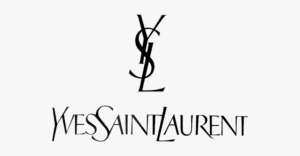
Yves Saint Laurent (YSL), also known as an iconic French fashion house, is widely revered for its elegant and sophisticated apparel, handbags, and accessories designs. The brand has become associated with high-end fashion due to its innovative and avant-garde creations.
The Ultimate Status Symbols: Yves Saint Laurent has long been known for their dedication to creating products that combine beauty and functionality with intricate details, luxurious fabrics, and sophisticated silhouettes to offer customers a luxurious experience.
History: Yves Saint Laurent was established in 1961 by its namesake, Yves Saint Laurent and Pierre Berge. Soon after, the brand quickly garnered international renown due to its innovative designs, such as creating the first women’s tuxedo and Mondrian dress based on Piet Mondrian’s artwork. Yves Saint Laurent remains one of the world’s premier luxury fashion houses.
Status Symbols: Yves Saint Laurent products have become the epitome of luxury and sophistication. Consumers worldwide adore its iconic logo and designs, often associated with wealth and prestige.
Beyond Products: Yves Saint Laurent has expanded beyond their core product offerings to offer experiences and services designed to satisfy luxury consumers, including their support of arts and culture and environmental sustainability initiatives.
The Business of Luxury: Yves Saint Laurent operates in an increasingly competitive luxury goods industry that requires it to evolve to continually stay ahead of customer needs and expectations. As such, innovation must remain at the core of what it does to stay at the top.
Innovation and Evolution: Yves Saint Laurent has long been at the forefront of the luxury goods industry innovation and evolution, pushing boundaries through using cutting-edge materials, technologies, collaborations with artists and designers, as well as exclusive product designs. This includes their use of new materials and technologies and creating exclusive pieces through partnerships between them and them to craft unique and exclusive items.
Luxury Brands and Sustainability: With consumers becoming more conscious about their impact on the environment, luxury brands such as Yves Saint Laurent are taking steps to become more eco-friendly, including using eco-friendly materials, reducing waste and carbon emissions, investing in ethical business practices and adopting more responsible business practices.
Future of Luxury: Luxury brands like Yves Saint Laurent must adapt their practices to stay current with changing consumer needs and desires, such as exploring new technologies and materials while emphasizing sustainability as they continue providing unique and exclusive experiences for their customers.
These brands are globally-recognized luxury labels, offering products of exceptional quality that appeal to discerning customers who appreciate the finer things in life.
Frequently Asked Questions (FAQs):
1.What are some examples of luxury products offered by leading luxury brands?
Luxury brands provide high-end fashion clothing, shoes, handbags, jewellery watches, perfume, cosmetics and home decor products that span various price points.
2.How do luxury brands maintain their exclusivity?
Luxury brands maintain exclusivity through limited production runs, limited edition offerings, and distribution through only select boutiques and department stores.
3.What are the price points of luxury products offered by top luxury brands?
Prices of luxury products sold by leading luxury brands can vary widely, from several hundred dollars to several thousand for items such as handbags, watches and jewellery.
4.Are luxury brands sustainable?
Many luxury brands have taken steps towards becoming more sustainable by adopting environmentally friendly production processes and selecting sustainable materials; however, more needs to be done for the luxury industry to become genuinely eco-friendly.
5.How have luxury brands transformed over time?
Luxury brands have evolved to meet consumer preferences, fashion trends and technological advances. Over time they have expanded their product lines, entered new markets and tested various marketing strategies.
6.What is the future of luxury brands?
Luxury brands of the future will likely focus on sustainability, technologically based marketing and production practices, personalized experiences for consumers and innovative approaches to creating them. Consumer behaviours could also play a part in shaping this outlook for luxury brands.

